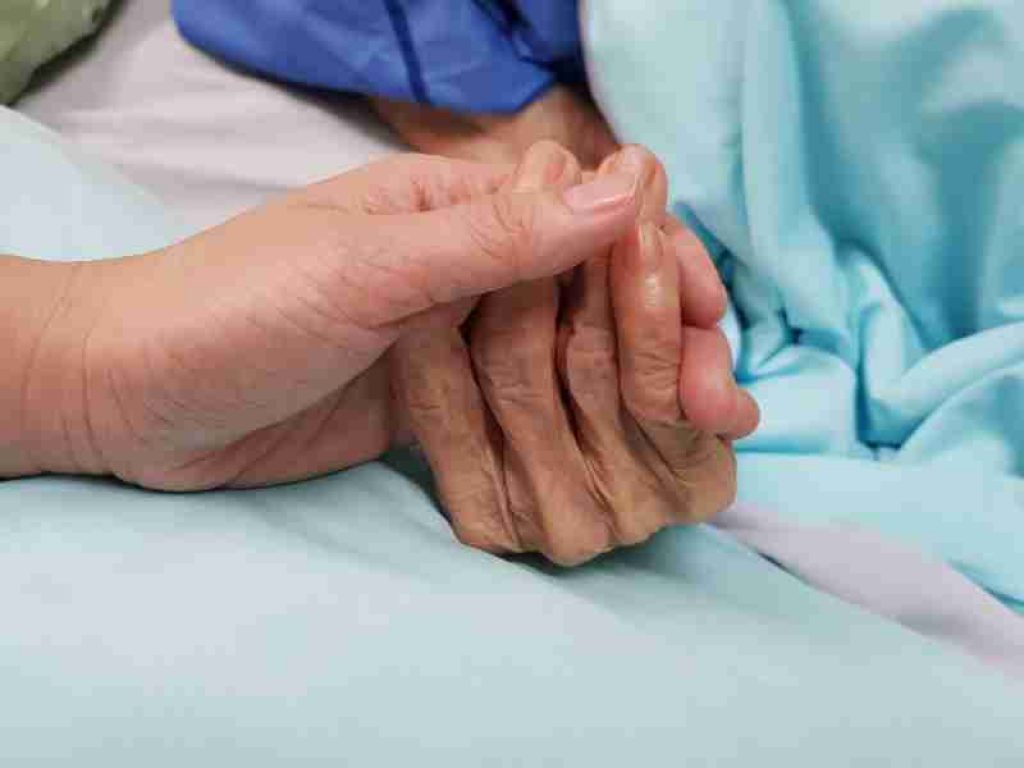
What Does A Palliative Care Nurse Do?
Nursing services assist patients in receiving the palliative care they require for long-term symptom alleviation and an improved sense of wellness and energy.
Following this, you’ll better understand how a palliative care nurse works, which will help you and your loved ones make informed decisions about which services will most benefit you.
What Is Palliative Care?
Palliative care aims to alleviate patients’ suffering by addressing the underlying causes of their symptoms. Patients may seek palliative care for relief from the symptoms of various diseases and conditions, including cancer, Palliative care services offer support to patients and their families dealing with chronic illnesses such as Parkinson’s disease, diabetes, and Alzheimer’s disease, addressing both physical and emotional distress associated with these conditions.
Moreover, nursing homes services facilitate the transition process for patients and their families dealing with health issues. Instead of treating disease, palliative care aims to alleviate symptoms. The purpose of palliative care is to make it easier and more bearable for patients and their loved ones to deal with health problems.
What is a palliative care nurse?
Palliative care nurses, or hospice nurses, are certified medical professionals who provide tender care to patients facing terminal illnesses. Whether stationed in a hospital or hospice center or making house calls, these compassionate caregivers are there to ease the pain and offer comfort when all other medical options have been exhausted.

Palliative nurses are the nurses of healthcare, equipped with the power to ease physical, emotional, and spiritual pain for both patients and their loved ones. With their expert symptom management skills and compassionate support, they guide families through the delicate process of good with grace and comfort.
What are the main responsibilities of nurses in palliative care?
A wide range of work is done by those who provide palliative care to ensure their patients’ comfort and health over the long term. To provide appropriate treatment, it is necessary to evaluate patients’ symptoms and overall well-being regularly. By keeping an open communication channel between the patient, their doctors, and other allied health professionals, palliative care nurses aid patients in taking their medications as prescribed and following other treatment protocols.
A palliative care nurse assists with daily routines, personal care needs, equipment maintenance, and monitoring. They comfort patients and their loved ones in the final stages of life.
What are the Skills of palliative care nurses?
Palliative care nursing involves providing comfort and care to terminally ill patients, which can be emotionally and physically challenging. It requires a higher level of skill to meet the needs of patients facing the end of their lives. The following are useful skills for palliative care nursing.
Empathy:
Palliative nurses, with empathy, can tap into the deepest emotions and challenges that patients and their loved ones face during end-of-life care. When faced with a terminal illness, emotional distress can be overwhelming. That’s why empathetic nurses are essential – they can connect and communicate with their patients in a way that brings comfort and understanding.
Medical knowledge:
Nurses possess a comprehensive understanding of anatomy, physiology, and medical terminology, which enables them to utilize basic and advanced medical knowledge in their profession. With a palliative nurse by your side, even the most bewildering symptoms or processes become clear, easing your anxiety and confusion.
Compassion:
Compassion is considered an important resource for palliative care nurses when attending to their patients and dealing with their difficulties. They provide top-notch care and give a helping hand to family and friends who may be feeling lost or overwhelmed during their loved one’s treatment.
Observation:
Palliative care nurses are trained to closely monitor patients for any changes in their medical condition, including diagnostics, symptoms, and other concerns. In addition to assessing physical health, they also take into account emotional and psychological well-being in order to provide assistance.
Critical thinking:
Nurses educate patients and families on how critical thinking may shift in end-of-life scenarios where acceptance of the inevitable is necessary. Medical professionals utilize critical thinking skills to assess and comprehend the challenges faced by their patients, providing effective relief, management, and counseling, particularly for family members who may have difficulty accepting such solutions.
Medication knowledge:
Medications play a significant role in advanced medical treatment. Nurses possess a wealth of knowledge about medications, from how they’re administered to the amazing perks they bring to patients’ health.
What are the Career Traits of a palliative care nurse?
- The ability to operate in emotionally and physically taxing situations.
- Resilience in the face of adversity.
- Counseling and advocacy abilities in support of patients and their families.
- Possessing the ability to empathize with grieving families.
- Working with medical and other healthcare professionals to provide effective palliative care.
What are the Key Responsibilities of a Palliative care nurse?
- Monitoring and treating pain.
- Reduce bodily discomfort.
- Provide drugs to patients.
- Provide comfort and encouragement.
- Inform and counsel patients’ families about their conditions.
What does a palliative care nurse do?
Palliative care nurses must juggle several responsibilities when caring for terminally ill patients. Some Common Duties Include:
Offer fundamental medical care:
The fundamentals of nursing care encompass essential tasks such as observing and documenting vital signs, ensuring patient hygiene, assisting with daily activities such as dressing and eating, and communicating with the patient’s primary healthcare provider.
Provide patients with comfort by:
The patients and their loved ones might find solace in the expert care provided by palliative nurses. They can assist in communicating with the patient’s loved ones, answering questions, and elucidating the patient’s condition or symptoms.
Share the patient’s condition with family:
In palliative care, nurses collaborate closely with the patient’s family to ensure they are informed of any updates to the patient’s condition. The nurses offer important knowledge regarding patient care, symptoms, and end-of-life processes.
Respect the rules of medicine and the law:
Nurses specializing in palliative care adhere strictly to all applicable laws and regulations. The code guarantees that doctors and nurses will treat their patients with compassion and empathy and provide them with the highest quality care possible.
Fill out and submit your medical paperwork:
Medical records, medication, prescriptions, doctor orders, and other paperwork related to a patient’s stay in a palliative care facility are all handled by the nurses working there. Nurses specializing in palliative care are well-versed in privacy regulations and adhere strictly to protocol while documenting patient care.
Provide medication:
On a doctor’s orders, nurses give patients some drugs. Understanding the correct dosage and how to administer medication, be it through a syringe or orally, is essential.
Make an effort to alleviate the pain:
Nurses specializing in palliative care keep tabs on their patient’s pain levels and provide any necessary medication, therapy (such as oxygen), or alternative pain relief (such as music or massage) until the patient dies. In addition to addressing the underlying condition, efforts are made to relieve symptoms such as nausea, anxiety, and bed sores.
Advise patients:
Palliative nurses are compassionate nurses who stand alongside patients when their families can’t. With a gentle hand on their shoulder and a listening ear, these angels guide patients through the emotional rollercoaster that comes with the end of life, offering spiritual support and helping them say goodbye with grace.
What are the Benefits of Palliative Care?
Palliative care reduces disease-related symptoms such as pain, persistent fatigue, and muscle weakness. It can also help with emotional problems, including depression and anxiety. Palliative care nurses utilize a comprehensive, interdisciplinary method to provide care, with the goal of assisting patients in preserving their physical, mental, and emotional well-being.

They listen carefully to their patients to develop individualized treatment plans for long-term improvement. Palliative care is a beacon of hope for those seeking long-term care solutions. With a strong focus on improving the patient’s quality of life, it offers a much-needed lifeline for you or your loved one.
How to become a palliative care nurse?
Registered nurses (RNs) in palliative care often hold a diploma, associate’s, or bachelor’s degree in nursing. These programs may last between two and four years. After completing the program, you must pass the NCLEX-RN exam administered by your state.
The first step in becoming a registered nurse (RN) is passing the exam. Examinations are often expensive, and the program may need you to recertify every several years. Further certification may take a few months to a year, depending on how quickly you learn and what other requirements you must meet.
FAQ’s
What function does palliative care play?
Regarding the diagnosis or stage of a patient’s ailment, palliative care is specialized medical care that focuses on relieving pain and other symptoms of a serious illness. The goal of palliative care teams is to enhance the lives of both patients and their relatives.
Are palliative care and hospice care the same thing?
When you initially find a terminal illness, palliative care is available. While undergoing various treatments for your condition, you can receive palliative care. As a person’s time on Earth concludes, they may get palliative care, known as end-of-life care.
What is the final phase of palliative care?
At the final stages of palliative care, end-of-life care is provided. People receive it when their terminal condition has progressed or another year of life is not expected. The goal is to make you as relaxed as possible so that you can make the most of the time you have.
Who are the patients receiving palliative care?
Palliative care assists people with serious conditions like heart failure, cancer, and Parkinson’s disease. It’s important to start receiving this care as soon as possible and it can help at any point during the illness.
What happens to a patient receiving palliative care?
Managing your bodily symptoms, such as pain, may involve psychological, spiritual, and emotional support. Social care includes assisting with bathing, dressing, and eating.







